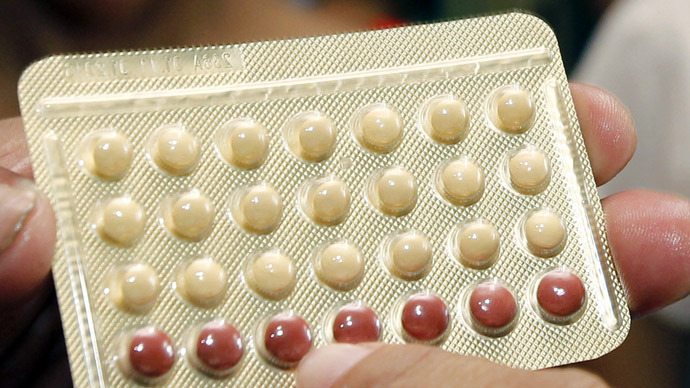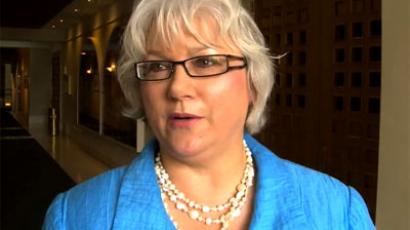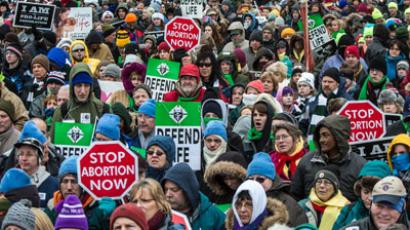Judge orders 'plan B' contraceptive pill to be available for women of all ages

In the US you still need to be 21 years old and have a valid ID to buy a bottle of beer. However a federal judge has ruled that kids and teens should have unlimited access to over-the-counter morning-after pills.
Currently, teens under the age of 17 can only obtain the emergency contraceptive pill with a doctor’s visit and a prescription. While older women do not need a prescription, the pill still remains behind the counter and obtainable only through showing a government-issued ID and placing an order.
If the Food and Drug Administration (FDA) takes US District Judge Edward Korman’s ruling into account, teens could soon purchase the contraception without needing to go to their parents and requesting a doctor's visit - an intimidating step that sometimes prevents sexually active girls from seeking out contraception.
Reproductive rights groups have long advocated to make the morning-after pill more available to everyone, particularly teens. The Center for Reproductive Rights has repeatedly petitioned the FDA to make the contraception more accessible, only to be shut down by the US Department of Health and Human Services.
The group had filed a long-outstanding lawsuit against the agency, whose secretary, Kathleen Sebelius, in 2011 overruled an FDA recommendation that the pill should be available without a prescription for everyone. In response to the lawsuit, Korman said the FDA’s rejection to remove the age restrictions to obtain the pill was “arbitrary, capricious and unreasonable.” His order represents a major victory for the Center of Reproductive Rights, which has been advocating the looser restrictions for years.
“Today science has finally prevailed over politics,” Nancy Northup, president and CEO of the group, said in a press release. “This landmark court decision has struck a huge blow to the deep-seated discrimination that has for too long denied women access to a full range of safe and effective birth control methods.”
If the FDA removes the age barrier, teens may be able to acquire emergency contraception in just a few weeks. Korman ordered the FDA to lift the restrictions on the sale of Plan B One-Step and its generic versions within 30 days.
“More than 12 years have passed since the citizen petition was filed and 8 years since this lawsuit commenced. The FDA has engaged in intolerable delays in processing the petition. Indeed, it could accurately be described as an administrative agency filibuster,” he wrote.
“The plaintiffs should not be forced to endure, nor should the agency’s misconduct be rewarded by, an exercise that permits the FDA to engage in further delay and obstruction,” the judge added.
The FDA and the Department of Health and Human Services have so far declined to comment to the media, but some doctors have expressed their concern about a move that they believe sends the wrong message to young girls about pregnancy prevention.
“Overall, it shows a lack of caution, if you ask me,” Dr. Jennifer Landa, chief medical officer for BodyLogicMD, told Fox News. “Of course the prevention of unwanted pregnancy is a good thing. The problem is [the morning-after pill] encourages women to be more cavalier and not use more reliable birth control we’d like them to be using, including barrier methods that protect against sexually transmitted diseases.”
The physician also argued that the availability of the morning-after pill may convince uneducated women to bypass other birth control methods and opt for emergency contraception instead.
“There are side effects with every medication,” Dr. Lisa Perriera of the UH Case Medical Center told Fox.
“The amount of progestin in Plan B One Step is 1.5 milligrams of levonorgestrel, which is much higher than the amount of progestin in birth control pills – which have already shown to have side effects,” she added. “And higher doses of progestin would of course have higher side effects.”
But other doctors argue that women and girls fearing pregnancy should have quick access to emergency contraception, and that any sort of delays brought on by doctor’s visits could be harmful in the long run.
The Centers for Disease Control and Prevention found that in 2011, a total of 329,797 babies were born to women aged 15-19 years. In 2008, teen pregnancy and childbirth accounted for $11 billion per year for increased health care and foster care, higher incarceration rates among children of teen parents, and lost tax revenue due to lower educational attainment and low-income teen mothers. The costs are paid for by US taxpayers, which makes the prevention of unwanted pregnancies important, the CDC reports.
It is not yet clear how the FDA will respond to Judge Korman’s ruling, but reproductive rights activists are celebrating the decision as a landmark victory.















